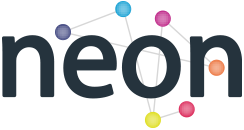NEON Working Group Addressing Differential Outcomes for Diverse Learners
Date
21/05/2024
Time
2:00 pm - 3:30 pm
Workshop Title: Tapping into the “Richness of Human Diversity”: Productively balancing competing agendas to promote inclusion, accessibility and employability.
(online via MS Teams)
This working group serves to provide a space for addressing the challenges of establishing better outcomes for ethnically diverse learners in Higher Education and explores innovative approaches to developing good practice in this area by way of practical discussions, research/case study analysis, and peer support.
14.00-14.10 Welcome and Introductions (Karen Lipsedge, Kingston University, Chair)
14.10-14.40: Dr Adam James Smith, Associate Professor of English Literature at York St John University
Abstract:
This workshop will begin by highlighting some of the issues I have encountered in recent years during my efforts to deliver a more decentred account of eighteenth-century literature as part of second year provision on the English Literature undergraduate programme at York St John University.
The module ‘Dawn of Print’ takes as its central interest the impact that the arrival of cheap print had on English Literature during the eighteenth century. I hoped that by thinking about who addressed and was addressed by this print culture, and examining eighteenth-century questions about what we might nowadays talk about as gatekeeping and, the module would deliver an immersive and relatable experience of eighteenth-century print whilst also adhering to the Quality Assurance Agency’s recommendation that Literary studies be a place where students can “engage with the richness of human diversity” and develop an “awareness of radical difference and contested narratives.”
I had initially intended to include Eliza Haywood’s periodical of 1746, The Parrot, on the module. As there does not yet exist as a modern critical edition of this text, I intended to teach it using a facsimile of the original eighteenth-century text sourced via Eighteenth-Century Collections Online/Historical Texts Online. However, it soon transpired that I could not do this because my institution’s commitment to universally accessible learning and teaching requires that all texts adhere to a certain set of standards which, perhaps unsurprisingly, eighteenth-century type-set falls badly short of.
To reconcile the conflict arising from my attempts to adhere to two laudable strategies—one promoting inclusion and another to ensure all learning and teaching is universally accessible—I have developed a new initiative in collaboration with colleagues on our MA in Publishing programme which sees undergraduate students, as part of their work-related experiential learning, invited to produce a new, accessible critical edition The Parrot. This strategy not only resolves the existing conflict between inclusion and accessibility but also promotes employability, again adhering to the QAA’s recommendation that literary study should “supports behaviours, attributes and competencies that are likely to have a significant impact on the individual student in terms of successful careers.”
This workshop will invite to participants to reflect on other possible complications, contradictions or conflicts arising from the overlap of multiple agendas intended to promote diversity and inclusion and through dialogue identify possible opportunities for maximizing the potential of such agendas through careful, generative synthesis.
Short bio:
Dr Adam James Smith is an Associate Professor of Eighteenth-Century Literature at York St John University, where he is also Course Lead for English Literature and Co-Director of the York Research Unit for the Study of Satire. He is a Senior Fellow of the Higher Education Academy and sits on the York St John University Teaching Senate. Adam’s research centres on the roles played by cheap print in mediating relationships between citizen and state in the long eighteenth century, with a particular emphasis on protest and satire. He is Chief Editor of Criticks, the online reviews hub for the British Society for Eighteenth-Century Studies, Eighteenth-Century Section Co-Editor for the Literature Compass journal and an editor on the People of Print series at Cambridge University Press.
14.40-15.00 Breakout groups
The breakout session provides colleagues with the opportunity to come together to discuss the project and how they could incorporate and develop the strategies provided at their institution. In your discussions, please consider the following topics:
- Have you ever encountered unproductive overlap between competing strategies designed to promote diversity and inclusivity?
- Have your efforts to diversify the materials your students are engaging with been curtailed by the still relatively limited availability of less well-known texts in an accessible format?
- Can you see any areas in your own institution where Work Related Learning/Employability initiatives might actually function as a way of promoting accessibility and inclusion?
- Are there any aspects of today’s discussion that you adapt or apply in your own practices and/or share with your networks
15.00-15.15: Feedback and Q&A
15.15-15.30: AOB and next meeting
